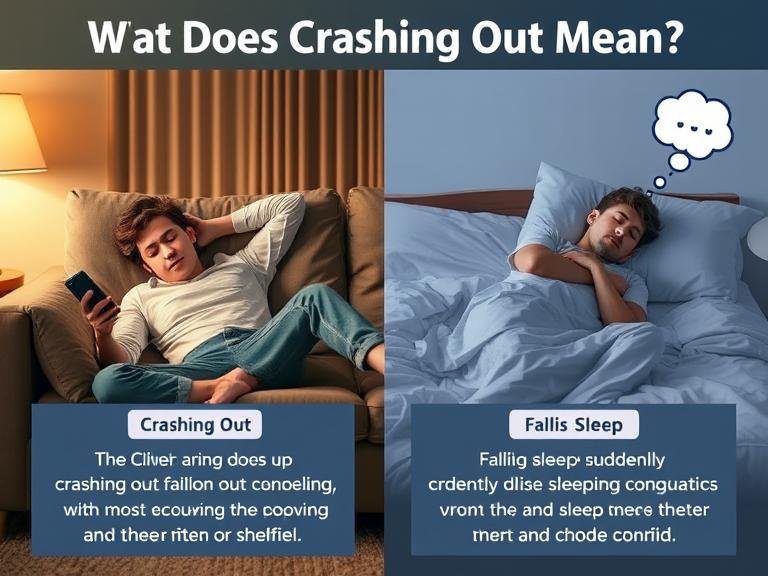What Does Crashing Out Mean? The phrase “crashing out” has become increasingly common in modern English, appearing in everything from sports commentary to financial news and everyday conversation. But what exactly does it mean, and how is it properly used?
This in-depth guide will explore:
✔ The primary definitions of “crashing out”
✔ Its origins and evolution in English
✔ How it’s used in different contexts (sports, finance, social situations)
✔ Common misconceptions about the phrase
✔ FAQ section addressing key questions
Table of Contents
The Core Meanings of “Crashing Out”
1. Failing or Being Eliminated (Competitive Contexts)
In sports, games, or competitions:
- “The defending champion crashed out in the first round.”
- Implies an unexpected or disappointing exit
2. Falling Asleep Suddenly
In casual conversation:
- “I was so tired after work that I crashed out on the couch.”
- Similar to “passing out” but more voluntary
3. Leaving Abruptly (Social Situations)
In party/event contexts:
- “We crashed out early because it got boring.”
- Suggests an unceremonious departure
4. Economic/Failure Collapse
In business/finance:
- “The startup crashed out after burning through funding.”
- Implies a spectacular failure
Origins and Evolution of the Phrase
Etymology Breakdown
- “Crash”: From Middle English “cracchen” (loud noise), later meaning “sudden failure” (18th century)
- “Out”: Adds sense of completion or finality
Timeline of Usage
- 1920s: First recorded in boxing terminology (“crash out” = knockout)
- 1960s: Adopted by surfing/skate culture (failing a trick)
- 2000s: Popularized in reality TV (contestant eliminations)
- 2010s: Common in tech/finance reporting
Contextual Examples of “Crashing Out”
Sports Usage
- Tennis: “Nadal crashed out of Wimbledon after a shock defeat.”
- Esports: “The team crashed out of the tournament after a server disconnect.”
Everyday Life
- Social: “We crashed out of the party before midnight.”
- Sleep: “The baby finally crashed out after hours of crying.”
Business/Finance
- “The crypto exchange crashed out amid the market downturn.”
- “Several airlines crashed out during the pandemic.”
Common Misuses and Clarifications
❌ Incorrect: “I crashed out my car.” (Should be “crashed my car”)
✅ Correct: “I crashed out after the long drive.”
❌ Incorrect: “The computer crashed out.” (Just “crashed” suffices)
✅ Correct: “The system crashed out during the update.”
Regional Variations
| Region | Preferred Meaning |
|---|---|
| UK | More common in sports commentary |
| US | Frequently used for sleep/social contexts |
| Australia | Often implies drunken exits |
| India | Growing use in business/failure contexts |
FAQs About “Crashing Out”
❓ Is “crashing out” negative?
Usually, but not always. In sleep contexts, it’s neutral.
❓ Can it mean success?
No – always implies some form of failure/stopping.
❓ What’s the difference between “crash” and “crash out”?
“Crash” = single event; “Crash out” = complete exit/cessation.
❓ Is this phrase formal or slang?
Considered informal – avoid in academic writing.
❓ How new is this phrase?
Gained popularity in 21st century but roots in early 1900s.
Psychological Perspective
Research shows:
- People remember “crash out” failures more than gradual ones
- The phrase triggers stronger emotional responses than synonyms like “eliminated”
- Overuse can normalize failure in competitive environments
Conclusion: A Phrase for Modern Times
“Crashing out” perfectly captures our era’s fast-paced, high-stakes environments – whether in sports, business, or social lives. Its versatility across contexts makes it a valuable addition to modern English, though best used judiciously in formal settings.
Final Tip: For clearer communication, always consider your audience – younger demographics understand all meanings, while older groups may only recognize the sports usage.

